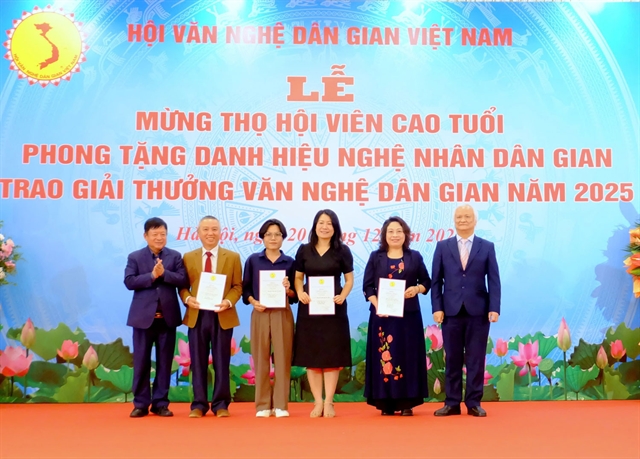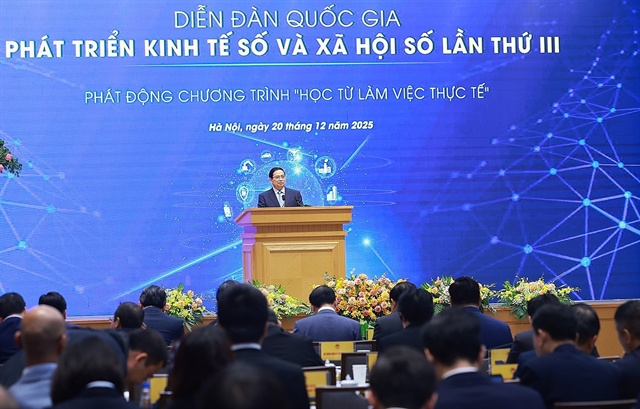 Opinion
Opinion
.jpg)
Lawyer Trương Thanhn Đức talks to the newspaper Nông thôn Ngày nay (Countryside Today) on what the country should do in the course of implementing Industrial Revolution 4.0
 |
| Trương Thanh Đức. — Photo danviet.vn |
Lawyer Trương Thanh Đức talks to the newspaper Nông thôn Ngày nay (Countryside Today) on what the country should do in the course of implementing Industrial Revolution 4.0
Do you think that the 4.0 revolution has put pressure on the Vietnamese economy?
We are now living in a world with deep and wide international integration. Only a small change somewhere in the world is likely to affect us. And of course, the 4.0 revolution is no exception. In my opinion, it is a good opportunity for Việt
However, in my opinion, the biggest pressure does not come from the people or the enterprises as they both know how to find a proper way for themselves. The most important point that I want to make is that the Government and its functional agencies as well as the whole institutional system should make some changes to suit the requirements of the 4.0 revolution.
In your opinion, what are these changes?
The first thing we should do is conduct deep changes in all aspects of life. And the Government should take the lead in the 4.0 Revolution by building an e-Government.
I have been informed that some provincial Governments have adopted plans to use the Zalo network to provide information and administrative legal documents to the general public. I highly appreciate this idea. Yet I’m a bit worried that the Zalo network is free. As a result its security is a concern we need to think about. We all know that the requirements of speed and precision are the two essential elements in the 4.0 industrial revolution.
That’s why, in my opinion, it is time for our administrative system, ministries and branches to renew themselves in the context of the 4.0 revolution. I’m pretty sure that advanced information technology will make our administrative work take a lot less time. And time is money so why don’t we quickly apply the 4.0 revolution in our administrative system?
Do you mean that the application of the 4.0 revolution should be top down, ranging from the institutional system to policies and specific tasks?
Yes! For example, when the Government or its functional agencies issues any legal documents or policies they should make it easy for the enterprises to apply them. Let me give an example on the proposal to collect a business tax for people selling products on Facebook. I support the idea. However, how to actually do it remains a big question for the authorities to think about.
In 2018, some 40,350 legal documents were promulgated, of which up to 14 per cent had content contradicting Vietnamese laws. These errors have caused big losses for enterprises.
As we all know, the 4.0 Revolution gears towards precision and automation. Do you think that automation will then put pressure on the labour market?
In my opinion, pressure on the labour market is a positive sign. It is a driving force for us to make a change or implement reforms to suit the new reality. But what’s more important, the Government should adopt a policy to help the affected people learn new jobs and to ensure good social security for these affected workers.
Do you think by now Việt
By now, quite a few fields have been operating comfortably in the context of the 4.0 revolution, particularly in the banking sector and with regard to information technology. However, for many other fields, they should exert a lot of effort to fully apply the 4.0 revolution, particularly in transport sector infrastructure. It is just at the level of 2.0.
Here, I just want to emphasise that if we want to make a change, the change should follow the format of top-down. For example, if the enterprises can do anything, just let them do it and the Government should only focus its efforts on big things in order to make a breakthrough. For example, in the transport sector, all toll booths must be automated. Or in the agriculture field, if we want to apply the 4.0 revolution, we must have big fields. That means we have to revise our Land Law to eliminate the restriction on land ownership.
In your opinion, what should Vietnamese enterprises do to prepare for the 4.0 revolution?
There is no other choice. If they want to take part in the game, they have to follow its rules. But now, I can say, in the fields of banking and IT, we’re at the same level with our international peers. But in my opinion, the most important and challenging aspect is changing our institutions and administrative mechanisms. When we fully apply the 4.0 Revolution in our administrative system, quite a large number of Government employees and civil servants will be made redundant. So it is time for Việt
.jpg)



